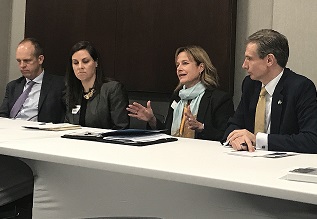The coming months may prove difficult in recruiting new graduate students, particularly international students, so Graduate Program Directors are encouraged to review their Graduate Enrollment Management Plans and modify/append efforts as necessary. Here are a few additional efforts our Graduate Admissions team is doing in an effort to enroll new/continuing students:
- With ETS administrations of the TOEFL and IELTS canceled, we are evaluating a new online test to enable international applicants to submit English proficiency scores;
- Anticipating use of ETS’s new online GRE which is expected to be available by the end of March;
- Offering GPDs maximum flexibility to waive GRE, GMAT, and MAT requirements for summer/fall 2020 and 2021 applicants;
- Extending individual outreach to applicants/admits with personalized help;
- Promoting additional virtual admissions information and admitted student sessions, and we encourage programs to offer these virtual sessions as well (contact us!);
- Increasing digital and social marketing, particularly in North Carolina, with the assistance of University Communications;
- “Over-booking” newly funded students in anticipation that individuals from some countries will not be able to obtain their visas and/or travel;
- Exercising more flexibility with deadlines, as appropriate.
Please reach out to our graduate admissions counselors, Maryanne Maree-Sams and Ellie Ivey, if you have any questions.













